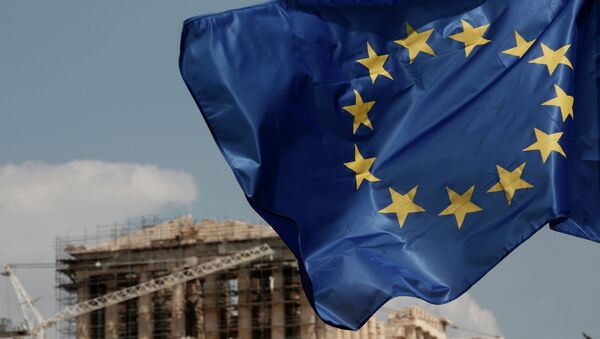A Greek university is at the heart of a 1.1 million euro fraud investigation by the European Anti-Fraud Office (OLAF).
OLAF said a Greek scientist had used a network of international researchers to skim money from a 1.1 million euro grant the European Research Council Executive Agency (ERCEA) gave to a Greek university.
The world is coming together to defeat the coronavirus.
— European Commission 🇪🇺 #UnitedAgainstCoronavirus (@EU_Commission) May 4, 2020
We have so far raised €5.4 billion in initial funding for affordable and accessible diagnostics, treatments and vaccines.#UnitedAgainstCoronavirus #GlobalResponse #StrongerTogether pic.twitter.com/bJwaJ1HyCs
They said the money was to be used by "a promising young scientist" to run a project involving 40 researchers from around the world.
But when OLAF looked into the project they noticed the lead scientist - whose father worked at the university - was writing cheques to the individual researchers but they were being deposited into bank accounts with multiple beneficiaries.
OLAF is working diligently to protect EU citizens’ money from any type of fraud, also within the institutions. OLAF investigates serious misconduct by EU staff/members of the EU Institutions to protect the #EUbudget & strengthen citizens’ trust in the EU🇪🇺 https://t.co/x5fZBl7j25
— OLAF Press Office (@OLAFPress) April 30, 2020
OLAF said the lead scientist tried to obstruct a digital forensic investigation but the Greek authorities provided access to bank accounts which allowed investigators to piece together the fraud.
According to OLAF, the scientist had made herself a co-beneficiary of the accounts in order to gain access to the money which was supposedly being paid to the researchers.
Always the same ones who pay for those who always live beyond their means, allow corruption, tax evasion & black economy. I'm looking at you France, Italy & Greece. Why should a German who retires at 67 pay for a Frenchman who retires between 50 and 62 with 40 special regimes.
— Socrates George Kazolias (@KazoliasG) May 5, 2020
OLAF’s Director General Ville Itälä said: "The sheer size and scope of the network of researchers allegedly involved in this project posed a real challenge to OLAF’s investigators. Their ability to access and verify accounts set up to allegedly pay researchers from across the world was a vital element in getting to the bottom of this attempt to defraud the EU budget – and that could have had significant detrimental effects on the reputation of the bona fide researchers whose names were being exploited as part of the fraud attempt."
So proud to work with amazing staff at OLAF towards building a better Europe with a positive impact on citizens’ everyday lives. See my interview with Global Investigations Review for more on our shared vision for tackling fraud in the EU: https://t.co/JHyHmE5CGx #FightingFraud pic.twitter.com/v1wo6m7FZ0
— Ville Itala (@ville_itala) April 22, 2020
The European Union is now seeking to recover 190,000 euros. OLAF has refused to name the scientist or the university involved.


